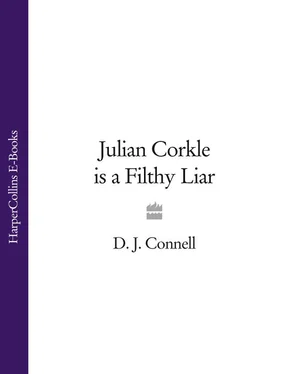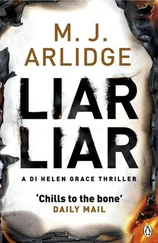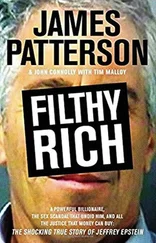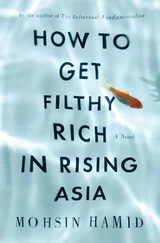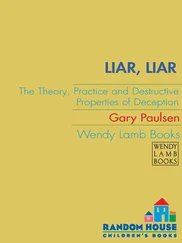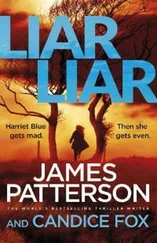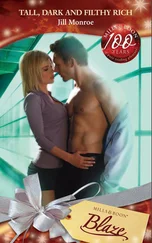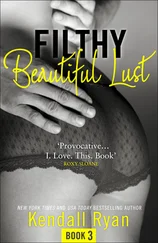‘No, I’m Sinatra.’ My voice had the whine that preceded tears and a tantrum.
‘OK, OK, we’re both Sinatra. I’m Frank and you’re Nancy.’
Carmel put together a routine of Frank Sinatra songs from Mum’s Sinatra records. My job was to do the harmonising vocals for every song except for a ‘You Make Me Feel so Young’ medley. For this number, I was allowed to sing the Nancy part unaided.
‘You have to sing it even higher and warble the end bits because it’s a girl’s part.’
‘But you sing Frank’s part in your normal voice.’
‘Yes, but my voice has a naturally deep timbre.’
I couldn’t argue with her on that point. People sometimes mistook Carmel for Dad when she answered the phone.
Carmel arranged an evening performance for the family in the lounge. My stomach was fluttery as we dragged the Aussiemica table in from the dinette and draped a red candlewick bedspread over it. Carmel placed three chairs in front of this stage but took one away after John refused to join. He said he had no intention of being showered with disease.
Mum and Dad were quiet for the first four songs, politely clapping at the end of each number and occasionally nodding. It wasn’t until the Frank and Nancy duet that we got the reaction Carmel had anticipated. Dad smiled for the first time in two weeks when I broke into Nancy. He was clapping wildly next to Mum by the time Carmel and I did our final harmony.
At the end of the show Mum handed us each a bar of Shelby’s. She ruffled my hair and whispered ‘Twinkle, twinkle’ in my ear before going into the kitchen to cut a cream sponge cake she’d baked for the occasion. Dad was still smiling when he came up to me. He pounded me on the shoulder in a manly but friendly way.
‘I needed that. The laugh’s done me the world of good.’
‘It wasn’t supposed to be funny, Dad.’
‘I was laughing with you. Did you think I was laughing at you?’
‘Yeah, I did.’
‘You think I’m the type of father who laughs at his children?’
‘Yeah.’
‘I was humouring you. It’s a form of encouragement. You’ll understand when you get older.’
‘I doubt it.’
‘Don’t worry. In a couple of years you’ll lose that whinny.’ He walked away laughing to himself.
The illness was ideal for receiving special treatment and avoiding sports, but it was bad news for Mum and Dad’s relationship. They’d always been a mismatched couple and never had the lovey-dovey sort of arrangement I saw on family TV shows. Mum and Dad didn’t exchange compliments or show open affection to each other. It was more businesslike than that. The arrangement became even less amicable after the beach trip. This lack of warmth transformed into hostility during Dad’s illness. While it had never been acceptable to show affection with children in the room, it was now fine to go at it hammer and tongs in front of us.
As the weeks dragged on, Dad got progressively more miserable and touchy. Even Carmel avoided the lounge where he’d taken up residence. My father spent his days not drinking and glowering at daytime television, which was dominated by cooking shows, farming programmes and reruns of old films. Even Dick Dingle produced boring daytime programmes. It was one of these, a Dingle documentary on the scouts of Tasmania, that finally stirred my father into action. He called John into the dinette and took out his chequebook. John waved the cheque at me to make sure I’d seen the sort of power relationship he had with our father before leaving on his bicycle.
That evening, a van arrived with a load of timber and chicken wire. Dad sat on the back step to avoid passing on his disease and called instructions to the man driving the van. The next-door neighbour started his lawnmower just as Dad began speaking. The bedroom I currently shared with Carmel was located at the back of the house and provided a view of the van and the back step. We watched from the window.
‘Just leave it under the plum tree, mate.’ Dad had to shout over the noise of the mower.
‘What’s that, mate?’
‘Under the plum tree, mate. Plum.’ Dad drew a plum in the air with two fingers but it may as well have been a heart or an upside-down bum.
‘Another bum treat? What the hell are you on about, mate?’
The man in the van had no way of knowing Dad was ill. Bum treat sounded poofy. To the driver, Dad was implying something unAustralian.
‘Under the fucking plum tree, you idiot.’
The mower stopped and Dad’s words hung over the neighbourhood. I imagined families frozen in front of their barbecues, sausages going silent on the grill. The F word had power. A thrill went through me. It was the first time I’d heard it from my father. I had to make the most of it.
‘You want to watch your mouth, mate. I’m not paid to be abused by some queer bastard who’s too lazy to get off his back step.’
Dad stood up and walked over to the van with long, deliberate strides. By the crimson of his neck I could tell that he was sizzling with anger. He poked his head in the van window and shoved it up close to the driver.
‘I’m not queer, mate. I’ve got hepatitis A. You can catch it from saliva spray. A microscopic speck is enough. Makes you as crook as a dog.’
The driver rolled up his window as soon as Dad had pulled his head away. He waited until my father had retreated to the step before hastily unloading the timber and wire. As he drove off, his wheels spun in the grass and left two long brown furrows under the plum tree.
Dad called the chicken coop a boys’ project and expected me to pitch in and help with its construction. He said it would teach us about building things, responsibility, life and death. I reminded Mum about my hepatitis and my father was warned not to let me lift a nail let alone a hammer. It took Dad and John three days to build. John was then sent on a mission to the local poultry farm, returning with ten chicks in an aerated shoebox on his bike carrier. The chicks were past the fluffy stage and had the beginnings of combs and feathers. Dad put them in the coop with some porridge. They pecked madly at the meal, spraying grey missiles in all directions. I ventured out to watch them feed. They were busy, funny things that took my mind off the miserable state of affairs inside the house.
We got the all-clear to rejoin the human race just as school started. The chickens began laying eggs a month later. A few months after that, Dad began introducing new chicks and culling the older girls. He bought himself a large metal chopper and placed a sawn-off tree trunk in the backyard.
I was supposed to take part in the slaughter but Dad ordered me to the back step when I refused to catch a chicken. I told myself that it wasn’t a big thing; chickens got killed every day. Carmel said they regularly got killed crossing the road. Dad put on a barbecue apron and sharpened the chopper. He wiped down the wooden stump and pulled the hose out to the backyard. John took his place next to him with a stupid grin.
Dad had prepared us for the slaughter by solemnly declaring that killing animals for food was natural to mankind. ‘We’re omnivores. That’s why we have molars and canine teeth. In nature, it’s survival of the fittest. It’s either them or us.’
I watched him run his finger along the chopper’s edge and began to sweat. ‘Them or us’ was a stupid idea. The chickens had no intention of pecking us to death.
My stomach tightened as Dad reached into the coop and grabbed a bird by the legs, carrying it to the stump upside down with its wings flapping. He asked John to hold the legs while he stretched out the neck. Bringing the chopper down fast, he sent the head flying off the stump at high speed. The chicken’s legs slipped out of John’s grasp as it gave its last jerks of life. Blood sprayed in an arc from the chicken’s neck, showering John and Dad with a line of bright red dots.
Читать дальше
